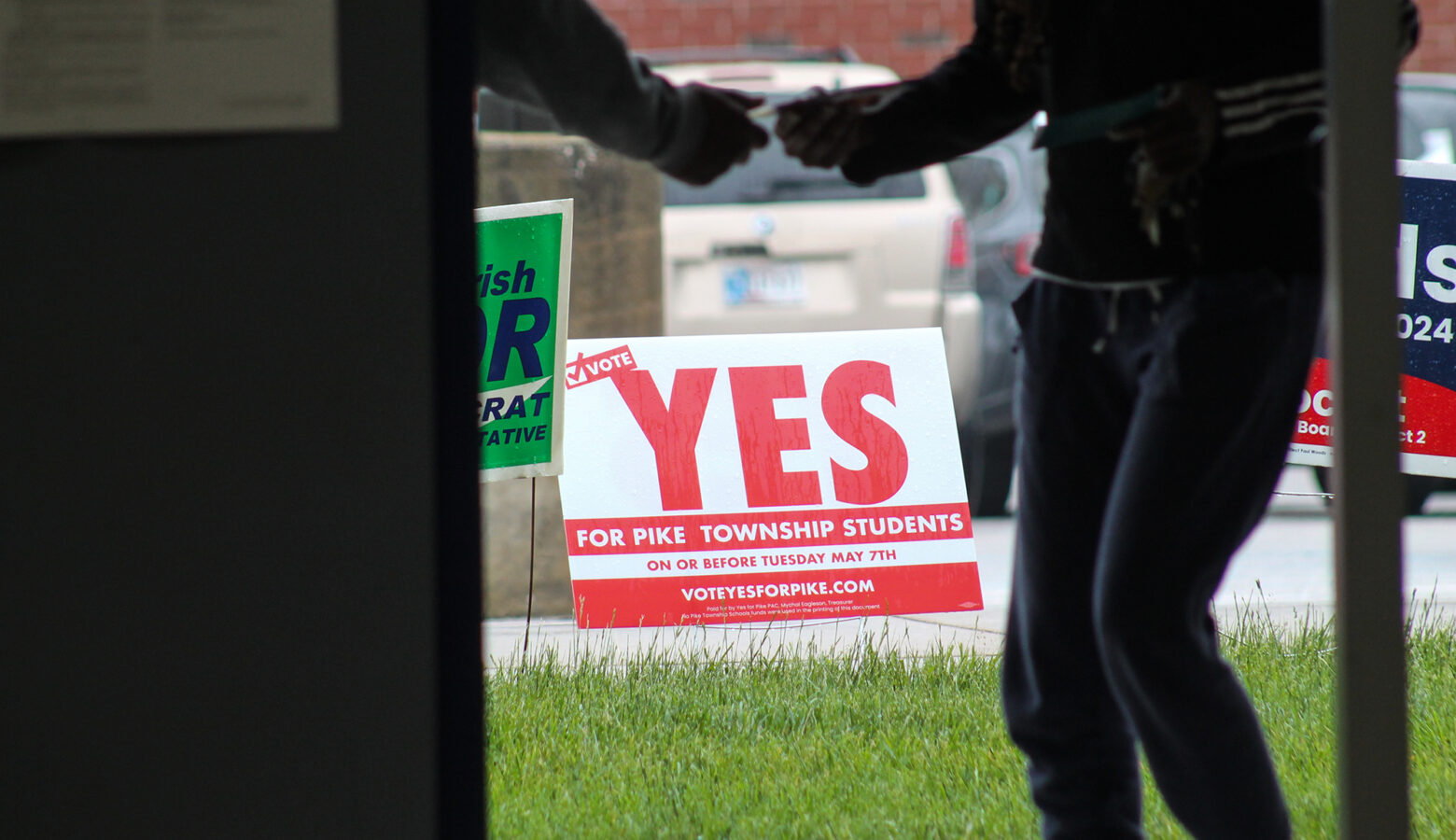Three Indiana school districts ask voters for funding in November election

Many public schools in Indiana are struggling to fill funding gaps. Three school corporations in the state are asking taxpayers to pass operating referendums during this year’s election for additional funding through property taxes.
What are schools requesting?
- Rate per $100,000 of assessed property value: $0.26
- Expected annual revenue: $6.2 million
- Kokomo is asking for funding from voters mostly for recruiting, retaining and supporting teachers and staff. A smaller portion of that money would be used for enhancing learning opportunities and academic programs, and the remainder would upgrade technology and software for teachers, staff and students.
Lake Station School Corporation
- Rate per $100,000 of assessed property value: $0.54
- Expected annual revenue: $1.4 million
- Lake Station Community Schools is asking for an operating referendum to cover transportation costs, maintaining academic programs, and recruiting and retaining teachers and staff.
- Rate per $100,000 of assessed property value: $0.25
- Expected annual revenue: $3.5 million
- Twin Lakes would use the funding to attract and retain teachers and staff. Another portion would be used for academic programming, and the remaining money would help with school safety and security.
This is the first time Kokomo School Corporation and Twin Lakes School Corporation have asked for operating referendums.
Kokomo School Corporation
Kokomo Superintendent Mike Sargent said one of the corporation’s main goals is to become more competitive among other districts in the region that have already approved referendums.
Sargent said the referendum would help Kokomo retain current staff and fill open positions with quality educators.
“We have over 800 employees, so it’s not just teachers. It’s also all of our support staff,” he said. “They play a vital role in the education process and have a direct impact on the learning experiences of our students. The focal point of this is to create those competitive salaries and wages for all our staff.”
Sargent said community members seem supportive of the referendum.
“When you think of your property taxes as a pie, school is a very small slice of that pie. This referendum is a very small part of that slice,” he said.
Lake Station Community Schools
Lake Station Community Schools asked voters last November to extend a referendum originally approved in 2017, but voters said “no.”
Lake Station was forced to cut costs this year and stopped busing students to school two days a week. Those are now e-learning days. The district also cut Spanish, elementary music classes, middle school and high school electives and its STEM program.
“We were very proud of the fact that when we offered STEM, we offered it for our kindergarteners all the way up to 12th grade,” he said. “We didn’t just save our STEM program for our high-ability students or gifted and talented students. We made it open for all of our students. We had to completely eliminate that program.”
Lake Station also had to fire custodians and all of the district’s paraprofessionals. Cripliver said paraprofessionals like instructional assistants are vital to teachers and students who need additional help and support, but the district just couldn’t afford to keep them.
He added that the budget cuts, while necessary, could negatively impact students.
“We are trying to maintain the educational environment so our students can still perform and grow academically, but we will find out in the coming months what impact this e-learning experience has had on our students as we approach the ILEARN test and the IREAD test coming up this spring,” he said.
READ MORE: What do I need on Election Day? The general election is Nov. 5
Join the conversation and sign up for the Indiana Two-Way. Text “Indiana” to 765-275-1120. Your comments and questions in response to our weekly text help us find the answers you need on statewide issues and the election, including our project Civically, Indiana.
Funding from Lake Station’s 2017 referendum runs out at the end of this year. If this referendum is defeated, Cripliver said the district will be forced to make more tough decisions — like completely eliminating busing for everyone except special education students. That is an absolute last resort, but Cripliver said the district will have to seriously weigh its options without additional funding.
“I’m hoping that this referendum coming up Nov. 5 will be successful and we will be able to restore busing students to the school building five days a week,” he said.
The last referendum was only defeated by 14 votes and voter turnout for municipal elections is particularly low. Cripliver said he is hopeful that higher voter turnout, referendum information meetings and radio chats will help inform the community and encourage them to vote “yes” this time.
“We look forward to the opportunity to talk to our community and answer any questions that they may have,” he said.
Kirsten is our education reporter. Contact her at kadair@wfyi.org or follow her on Twitter at @kirsten_adair.

